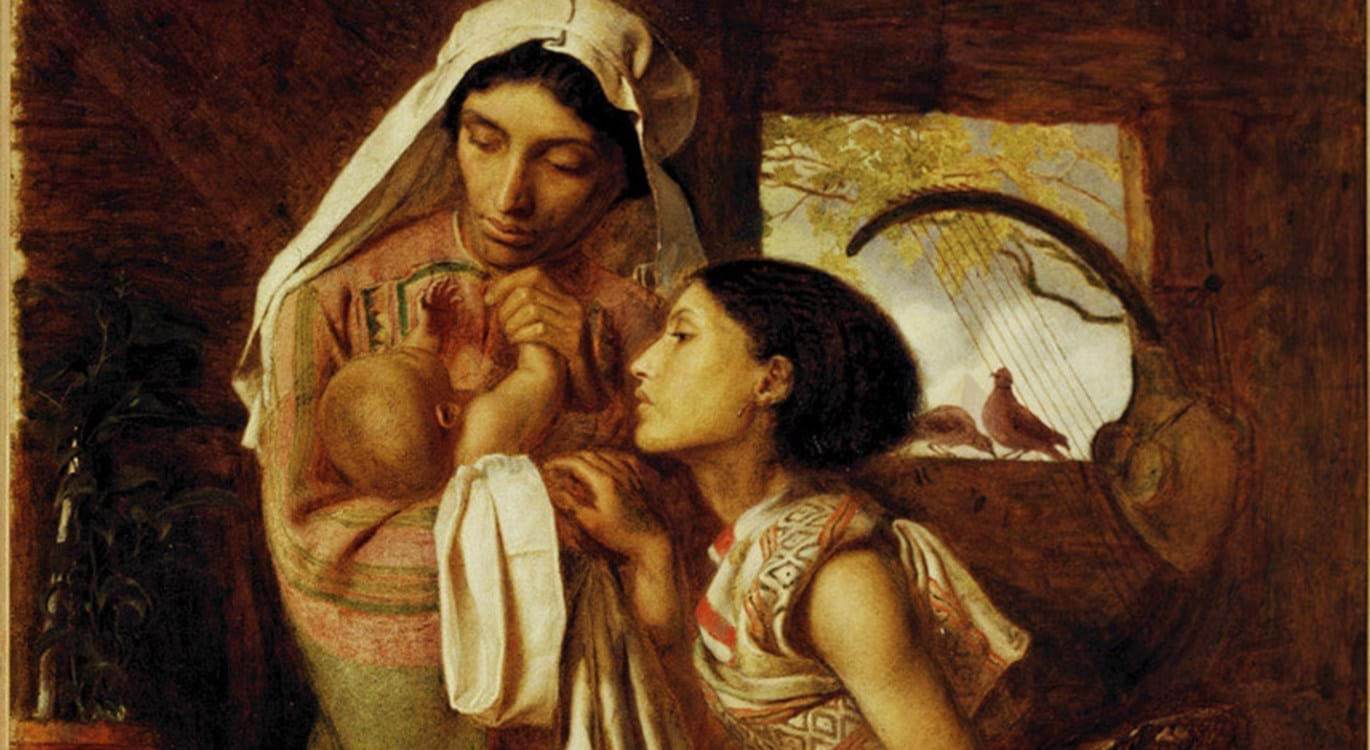She had a plan. And when she could no longer hide her baby at home, she went into action.
She carefully made a basket, placed her son in it, and set him in the river near where Pharaoh’s daughter often bathed (Exodus 2:3). How did she feel, knowing that any hope of his life being saved would also mean that he would grow up as an Egyptian, in the palace of Egypt? That he would be immersed in a culture that was opposed to the truth of God?
Jochebed was a woman of faith. She believed that God could preserve her son in an ungodly environment. It was this faith in God that empowered her act. So we watch, as she builds her little basket for him so carefully and then places him among the reeds by the river’s edge.
Jochebed was an Israelite whose faith and trust was in the one true God, the Creator of heaven and earth. She wanted her son to love and serve God too, and yet here she was apparently risking all this in order to save his life. If found by Pharaoh’s daughter, Moses would possibly grow up in an environment where multiple false gods were worshipped. Where there was no knowledge of the one true God and His ways.
Yet, her great faith in God shone out. She believed God had a plan for her son. And so, even as she tucked her son carefully into the basket, she placed her own faith in the God of heaven to protect him.
However, this wasn’t a careless abandonment. She didn’t turn her back and walk away. She carefully orchestrated events as far as she could, and was ready to offer her services to Pharaoh’s daughter as a nursemaid, ensuring that she would be the one to care for her son (vv.4-9).
This put Jochebed in a unique position. Her son would be known as the son of Pharaoh's daughter, yet she was able to maintain a deep connection with him. Not only did she nourish him with food and surround him with love, but she began her crucial work of equipping him for the life that would be his. Jochebed would have used every opportunity to pour into his young life. What she did in those years (however few they were) was of great import.
She made sure he had a true understanding of his identity. That he was an Israelite – not an Egyptian. That becomes clear later on:
“Now it came to pass in those days, when Moses was grown, that he went out to his brethren and looked at their burdens” (v.11).
He knew who he was. He may have looked like an Egyptian, but he was not. He had another identity that he could choose to embrace and walk into.
Surely Moses’ mother would have told him the tales of his history. The great story of creation; of Adam and Eve, and how sin came into the world. The stories of Abraham, Isaac and Jacob. Of Joseph, too, and how their people came to be in Egypt.
She would have taught him about God, the promise-giver. The one who had promised they would be delivered out of Egypt and brought to a land of their own.
As Moses watched his birth family, he must have seen something that he would not find when in the palaces of Egypt.
They had something of more value. There was something of God in their home. Something of the love of God. A strong faith in God and a hope that God would deliver them.
Was it this godly, loving home that sparked the flame of faith in Moses’ heart?
The impact of a faith-filled mother and father who showed him what was truly greater riches?
So that we read in the New Testament that “Moses, when he became of age, refused to be called the son of Pharaoh’s daughter, choosing rather to suffer affliction with the people of God than to enjoy the passing pleasures of sin” (Hebrews 11:24).
Jochebed and her husband could have been filled with fear at the thought of sending Moses into such an ungodly world, and continued to hide him in their house.
However, Jochebed chose the path of faith. To trust God with her child.
Did she even have hopes of a saviour for her people? Did she harbour her own ideas of how Moses could grow up and assist her people in freedom from slavery.
Jochebed was a woman of vision and great faith. Do we dare to be, too?
“Be strong and of good courage, do not fear nor be afraid of them; for the Lord your God, He is the One who goes with you. He will not leave you nor forsake you.” (Deuteronomy 31:6)



